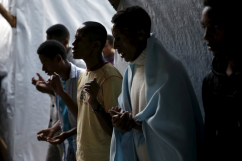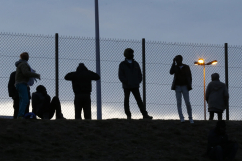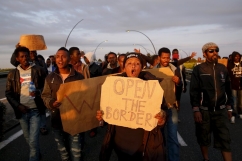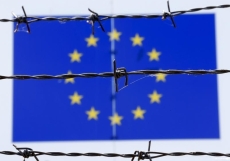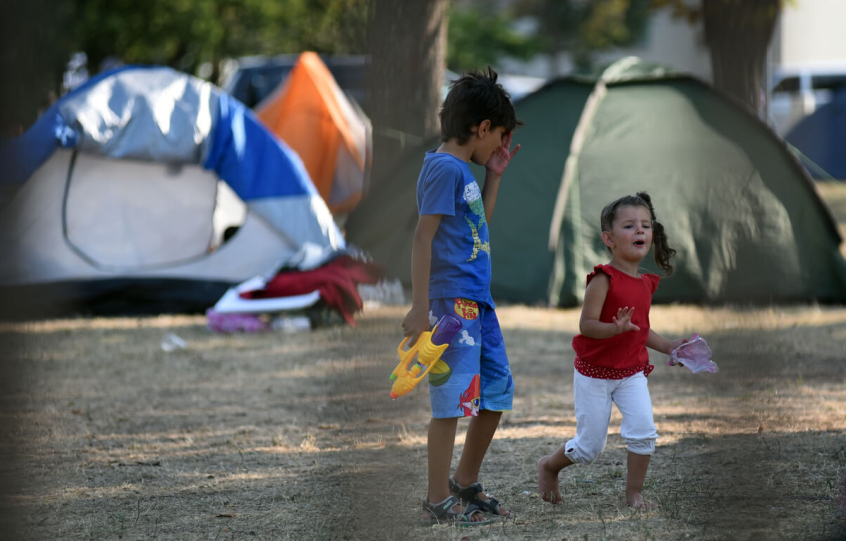
I've just spent a week interviewing asylum seekers in Austria. Yes, really in Austria.
We associate the country with chocolate cake, opera and The Sound of Music, which, incidentally, marks its 50<sup>th anniversary this year.
But Austria is the first Western European country you come to if you are being trafficked across mainland Europe from Syria, Iraq, Afghanistan, or Africa.
Some 80,000 asylum seekers are expected in Austria this year. Already, the numbers are up by 180 per cent on last year. It means that Austria – a nation with a population of just 8 million – has the highest per capita number of asylum seekers anywhere in Europe.
I was there to report on how the Church is helping asylum seekers for The Times and the BBC, and have reported on conditions at the asylum reception centre for The Independent.
What struck me time and again was that everyone I met was articulate, professional and well-educated. All had fled their homes in desperation when it was either do that or die.
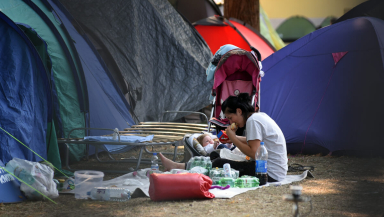
I met Peter, a former US government translator, at a church in central Vienna. He's a Christian convert from Islam. He and his wife had fled their Middle Eastern home – and pleasant lifestyle – when his family discovered that he'd converted and threatened to kill him.
Then there was Tony, who 'escaped in the middle of the night' when clashes between ISIS and government forces in Syria came to his street.
And finally, there was a woman from Syria who was too scared for her family who are still there to give her name.
She'd worked for a large company, had "the latest model car", and from her photos, lived in some opulence. She and her family left when they received threats from ISIS that their children would be kidnapped.
She'd seen it happen to others. One warning was enough. After a lot of heartache and turmoil, the family left and now lives in a high-rise apartment on the outskirts of Vienna, having been granted asylum.
Her husband, an academic, delivers pizzas. Though she is fluent in English and several other languages, she can't get a job.

None of these people wanted to leave their homes. They did it because it was a choice between doing that or dying. They have all experienced unimaginable terror. They are not, as some of the British media would have it, "illegal immigrants". They are all asylum seekers.
I've been shouting this at the radio every day since I've returned as individuals on phone-ins and worse, British politicians, have called people like this "illegal immigrants" and "migrants".
As for some of the coverage in our esteemed newspapers: it's jaundiced and creates the wrong impression.
To call someone an "illegal immigrant" is to suggest that they are living in the UK, having overstayed their holiday or student visa, and are working in the shadow economy.
Now, of course, there are some people living in Britain illegally. But those who I met in Austria – and very likely those in Calais, and boats in the Mediterranean – do not fall into that category.
There is, I'd suggest, a bit of an agenda running here. Tell a story of people storming the defences of the UK, people without passports, set to live in our houses, take our jobs, and you paint a picture of Blighty under siege from dreadful terrors. And you don't have to help anyone.
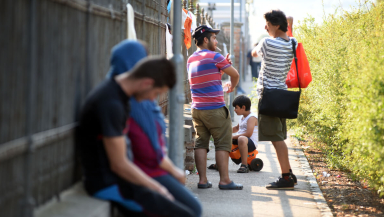
It is a malicious misuse of the English language to use this phrase. It conflates two ideas: the first, immigration; the second, the seeking of asylum.
A person may choose to go and live in another country because they can find a job that really suits them, they marry someone from there, or they just fall in love with the country, or all three. I've got friends who fit into these particular bills.
They migrated to Britain, have become residents and later citizens, and are uniformly working their socks off and adding to the rich texture of life. I can't imagine life without any of them.
While we're at it, 'migrants' don't just come from abroad to the UK. This is two-way traffic. According to the World Bank, there are between 4.5-5.5 million Britons living abroad, all of whom you could call 'migrants'. That's about seven to eight per cent of the British population.
Secondly, there are asylum seekers. These are people in absolute extremis; people who don't want to leave their home; aren't looking for a job abroad; haven't fallen in love with another nation, or a person. They just want to stay alive. There's a clue in the name.
If we're playing the numbers game, according to the Refugee Council, there have been an estimated 9,500 applications for asylum in the UK.
Last year, there were 31,400, of which just 41 per cent were granted.
If I imagine myself in Peter's shoes, I would hope that someone somewhere would show empathy, would imagine how I might be feeling, would care, and would help me. Wouldn't you?
If you wouldn't, then you're within your rights to withhold care, empathy and help. You're allowed to call them "illegal immigrants" and you can just imagine that they are "a swarm" and not a whole load of individuals just like you who happen to be in a very, very dreadful situation.
Before I left for Austria, a friend rang to wish me luck. They asked, "Why is it that they're all coming here?"
"They're not," I said. This is a myth. It's factually incorrect. European countries taking the most asylum seekers are Hungary, Sweden and Austria. They are taking ten- and in some cases, thirty-fold the number of people that we are in the UK.
This was news to my correspondent.
Some of the British media is reporting this well: The Guardian, The Independent, BBC, The Sunday Times and The Times. But there are sections of the press that, I have to say really need to abandon an agenda of fear and have a bit of compassion.
Didn't Jesus bid us act like the Good Samaritan, caring for people rather than passing by? ITV journalist Tom Bradby did that this weekend, when he repeatedly dived into the sea to try to save a Greek man who'd deliberately driven his car off a harbour wall.
Collectively as journalists, we have to use the right language to describe people. And we have to remember that people are people, just like us. And, I'd suggest, we need to remember how we'd feel in their shoes and then report accordingly.
Hazel Southam is a freelance journalist.










